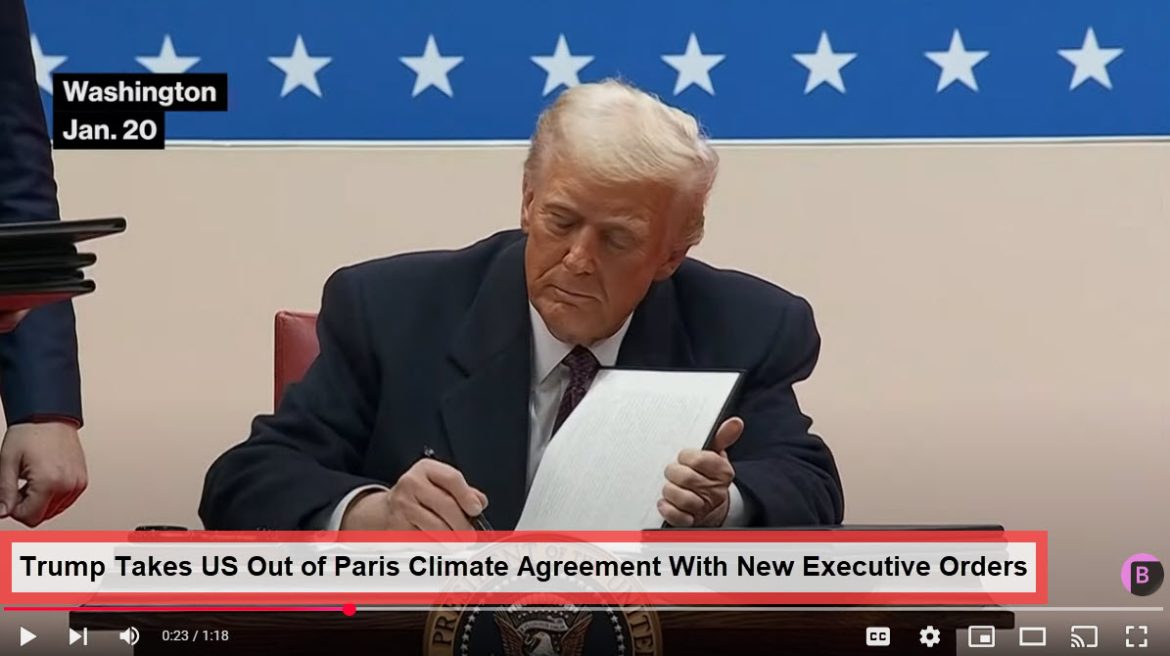President Donald Trump announces the withdrawal of the United States from the Paris Climate Agreement for a second time, reigniting debates about America’s role in combating global climate change. The decision, confirmed in a memo to Republican House members, marks a significant reversal of the Biden administration’s recommitment to the accord during its tenure.
The Paris Climate Agreement, originally signed in 2015 under President Barack Obama, is a landmark international accord involving nearly 200 countries. Its primary goal is to limit global temperature increases to below 1.5 degrees Celsius above pre-industrial levels, with participating nations committing to reducing greenhouse gas emissions and adopting sustainable energy practices.
President Trump first withdrew the U.S. from the agreement during his initial term, arguing that it unfairly disadvantaged American businesses and workers while granting leniency to major polluters like China and India. After two years of procedural delays, the withdrawal officially took effect in November 2020. However, President Joe Biden promptly re-entered the agreement upon taking office in 2021, framing climate action as a moral and economic imperative.
In this second withdrawal, Trump reiterates his belief that the agreement imposes undue financial and regulatory burdens on the United States. Speaking at a White House press briefing, Trump calls the Paris deal a “globalist scheme” that jeopardizes American energy independence and job creation. He emphasizes his commitment to prioritizing domestic industries, particularly coal, oil, and natural gas, while rejecting what he terms “climate alarmism.”
The withdrawal is met with sharp criticism from environmental advocates and international leaders, who argue that the move undermines global efforts to combat climate change. Activists warn that the decision could embolden other nations to weaken their climate commitments, jeopardizing the collective goal of reducing emissions and mitigating catastrophic climate impacts.
The European Union and several other signatories express disappointment in the U.S. decision but reaffirm their commitment to the agreement. French President Emmanuel Macron issues a statement urging the U.S. to reconsider, emphasizing the need for collective action in the face of a climate crisis. Meanwhile, the United Nations warns that the withdrawal could hinder progress toward meeting global emission reduction targets.
Domestically, reactions are polarized. Republican lawmakers largely support the move, praising it as a defense of American sovereignty and economic interests. Democrats and climate advocates, however, denounce the decision, calling it a shortsighted step that ignores scientific consensus and the growing economic opportunities in renewable energy industries.
The withdrawal sets the stage for renewed political battles over climate policy, both within the U.S. and on the international stage. As the global community grapples with intensifying climate challenges, the absence of the United States—the world’s second-largest emitter of greenhouse gases—raises questions about the feasibility of achieving the Paris Agreement’s ambitious goals.



